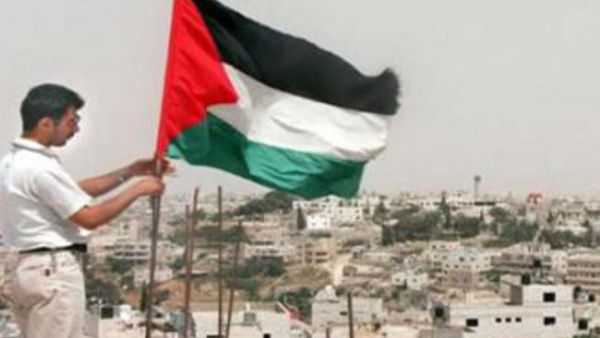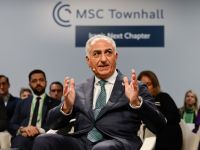Arab states agreed to provide the Palestinian Authority with a $100 million monthly “financial safety net” to help President Mahmoud Abbas’ government cope with an economic crisis after the UN granted de facto statehood to Palestine, Reuters reported.
Israel has responded to the November 29 UN vote by ordering 3,000 Jewish settler housing units be built in the occupied West Bank and announced it would hold back payments of customs duties it collects on behalf of the Palestinians to pay an outstanding electricity bill.
In a statement issued on Sunday after a meeting in Doha, Arab foreign ministers called for the “immediate implementation” of a resolution passed at an Arab summit in Baghdad in March, which called for the provision of a $100 million monthly safety net. But the statement did not give details of how the money would be paid or who would pay.
Israel and the US opposed the UN General Assembly’s upgrade of the Palestinians’ status to “non-member state”, saying Abbas should instead resume peace talks that collapsed in 2010 over Israeli settlement building.
The World Bank and the International Monetary Fund said in September that a gathering crisis in the Palestinian economy will worsen unless foreign funding increases and Israel eases long-standing curbs on development.
In a separate report, the World Bank also forecast a $1.5 billion Palestinian budget deficit for 2012, with donor funds expected to cover only $1.14 billion of this shortfall.
Last Thursday, the Palestinian Cabinet said at a meeting in the West Bank city of Ramallah that $240 million were needed every month to meet demands arising from the Israeli decision to stop customs revenues transfers and the failure of donors to transfer previously pledged funds.
The Arab ministers also called for convening of a donors conference to discuss ways to support the Palestinian people in the West Bank and discuss reconstruction in the Gaza Strip, Reuters reported.
Also at the ministers’ meeting, Qatar called for a rethink of an Arab offer of normal ties with Israel in return for its pullout from occupied land and branded the international Quartet a failure, Agence France-Presse reported.
“It is logical after 10 years to objectively reconsider the peace process, including the Arab initiative,” said Sheikh Hamad Bin Jassem Al Thani, the country’s prime minister. He called for a “thorough look into developments in the region and the world, and to decide carefully on our future steps and roadmap”.
Sheikh Hamad, who heads an Arab League follow-up committee, said the initiative tabled in 2002 by Saudi Arabia and endorsed by the Arab League would “not be on offer for ever”. The league has proposed a normalisation with Israel in return for its pullout from occupied lands, notably the Palestinian territories.
Abbas, for his part, told the meeting in Doha that he was opposed to a withdrawal of the offer, warning that it could lead to regional conflict. “It is not permissible to talk about sidelining the Arab peace initiative. It should stay,” he said. “It is a very important initiative, and I hope that we would not every time talk about shelving it, because that would mean war.”
“Are we ready for war? Personally, I say I am not,” he added, AFP reported. The Qatari premier also criticised the diplomatic Quartet for Middle East peace comprising Washington, Moscow, Brussels and the UN which he said had “proven to be a failure and unable to make any achievements”. He called for a “re-evaluation of its performance”.
Speaking at the meeting Foreign Minister Nasser Judeh said the Arab Peace Initiative is important and inclusive, stressing that it should not be changed but used to help build on Palestine’s UN upgrade and move the Middle East Peace Quartet’s efforts forward to resolve all final status issues, the Jordan News Agency, Petra, reported.
Judeh also expressed Jordan’s support for efforts to arrive at Palestinian unity as a step on the way to revive peace negotiations, according to Petra.
The ministerial committee agreed to form a delegation to the UN Security Council to negotiate an Israeli withdrawal to pre-June 1967 borders, in light of the UN General Assembly vote to admit Palestine as a non-member state, AFP reported.
“Palestine’s admission as an observer state at the United Nations and the significance of this international recognition of Palestine as a state under occupation obliges the international community to end occupation,” it said in a final statement.








